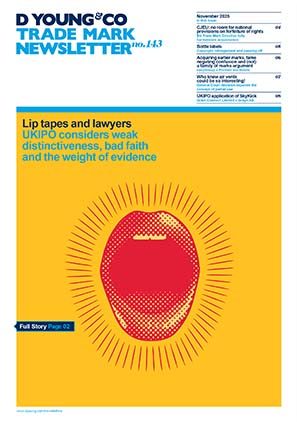A reminder of the ugg-ly effects of cross-border shipping under German trademark law
A lawsuit between the owners of the US Ugg brand and an Australian leather shoemaker, which apparently sold and shipped 13 pairs of handmade Australian ugg boots to the United States, has gained extensive media coverage of late. While media reporting has primarily focused on the question of whether US trademark protection should be allowed at all for the term ‘ugg boots’ (this being a generic term for the marketed type of shoes in Australia), the case also illustrates the risks and opportunities created by global access to products online. In this context, a recent decision of the Higher Regional Court of Frankfurt (6 U 273/19) serves as a reminder of the potential for owners of German national trademarks to effectively enforce their rights against online infringers abroad.
Facts
The plaintiff – a manufacturer and distributor of clothing, accessories and shoes – owned the German trademark registration MO in relation to clothing. The defendant owned a clothing boutique in Northern Ireland and offered products for sale through its online shop. While the online shop was hosted on a UK domain ending ‘.co.uk’ in English and with prices listed in UK sterling, worldwide international shipping was offered for £20.
The plaintiff successfully carried out a test purchase of a scarf, which had been advertised as a Tommy Hilfiger MO Logo Scarf. After an unsuccessful warning letter, the plaintiff successfully sued the online shop owner for trademark infringement before the Frankfurt District Court.
In its appeal, the defendant argued that the German courts lacked international and local jurisdiction in the case as the offer had not targeted the German public. The Frankfurt courts rejected the appeal.
Decision
The Frankfurt Higher Regional Court confirmed that the offer of worldwide shipping – even from an online shop operating in English and located in Northern Ireland – can give rise to international and local jurisdiction among German courts if a test purchase results in the delivery of products to Germany. This is because the offer already establishes a commercial effect and thus trademark infringement in Germany.
The court held that the availability of the offer in English would be sufficient in the context of the digital age and the growing ease of cross-border shipping. Moreover, the court confirmed that utilising the worldwide shipping option for a test purchase made via a mystery shopper does not constitute an abuse of rights under German law. The court also confirmed that where a model name is part of the highlighted headline of a clothing offer in connection to a well-known manufacturer's name, the public would perceive such a name as an indication of origin in the sense of a secondary trademark.
Comment
Although the decision does not rewrite German case law history, it still highlights the strength and potential of national trademarks in brand enforcement efforts. Particularly, when it comes to branded end-consumer products that are eligible for mail order, trademark owners should never write off national marks or undervalue the potential of national registrations in their filing strategies. Indeed, national registrations can prove to be specifically sharp weapons in cases where EU trademarks are not available. Further, trademark owners should keep in mind that Germany is often a relatively effective and inexpensive jurisdiction for IP infringement litigation.
This article was first published on World Trademark Review on 27 May 2021: www.worldtrademarkreview.com
